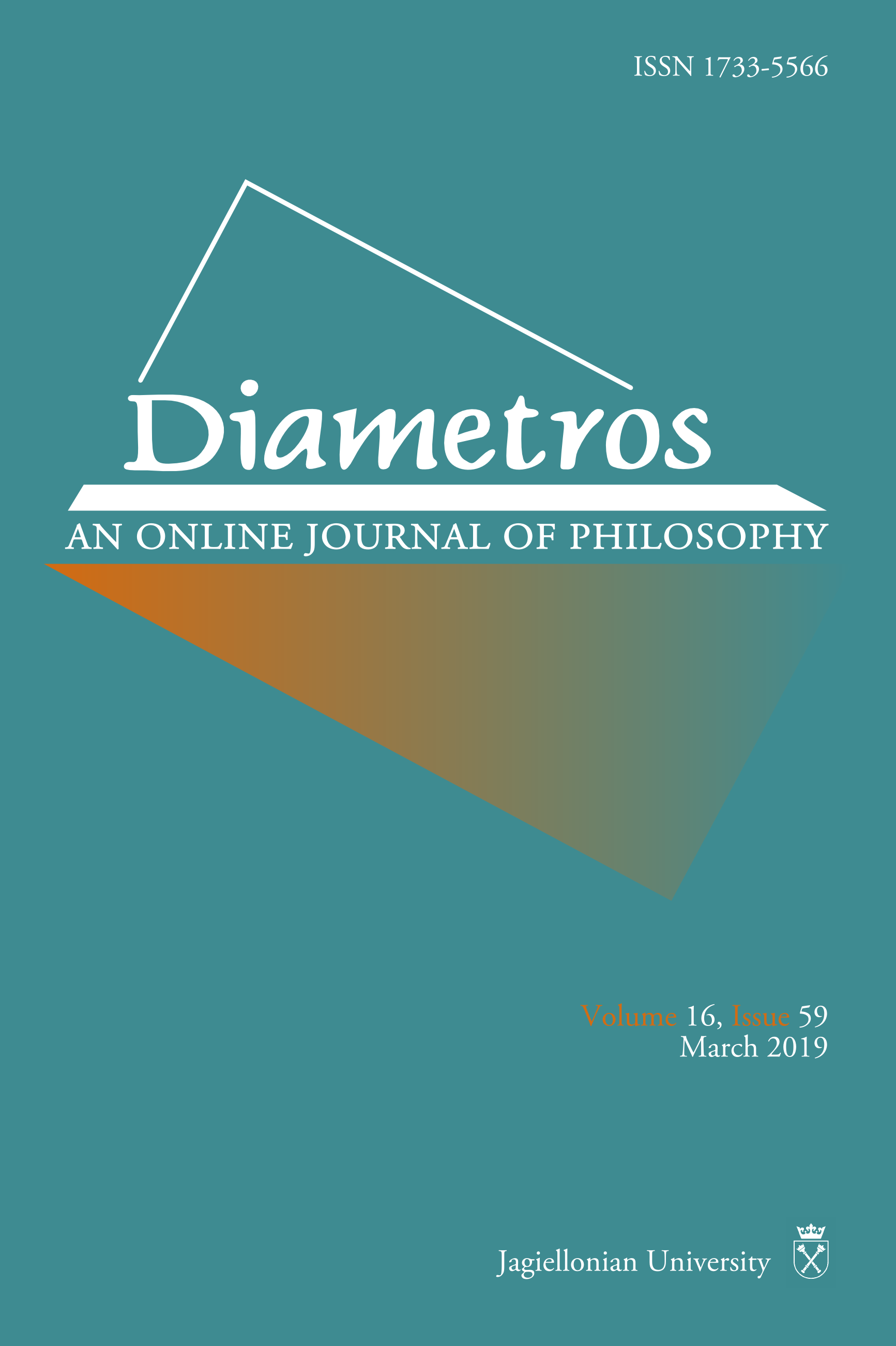Sensus divinitatis jako koncepcja genezy przekonań teistycznych
Main Article Content
Abstrakt
W koncepcji Alvina Plantingi, sensus divinitatis („zmysł boskości”) jest ludzką władzą poznawczą, nakierowaną na tworzenie posiadających gwarancję (pozytywny status epistemiczny) przekonań o Bogu. Większość komentatorów myśli Plantingi koncentruje się na pytaniu, czy wprowadzenie tej koncepcji faktycznie pozwala obronić racjonalność przekonań teistycznych, pomijając przy tym zazwyczaj genetyczny aspekt funkcjonowania zmysłu boskości. Niniejszy artykuł ma na celu wypełnienie tej luki. Na podstawie Warranted Christian Belief Plantingi wyróżniam trzy możliwe interpretacje tego, jak sensus divinitatis tworzy przekonania teistyczne. Wskazuję także, w jaki sposób ludzki grzech wpływa na poprawne funkcjonowanie zmysłu w ramach każdej z tych interpretacji.
Article Details
Numer
Dział
Teksty zaproponowane do naszego czasopisma nie powinny być nigdzie publikowane przed ukazaniem się w „Diametros”. Wraz z przesłaniem swojego utworu redakcji autor akceptuje, że w momencie zakwalifikowania tekstu do publikacji czasopismo „Diametros” będzie stosowało licencję the Attribution 4.0 International (CC BY 4.0). Na podstawie tej licencji autorzy zgadzają się, że ich prace mogą być zgodnie z prawem ponownie wykorzystywane do jakichkolwiek celów bez konieczności uzyskania uprzedniej zgody ze strony autora lub wydawcy. Każdy może prace te czytać, pobierać, kopiować, drukować, rozpowszechniać oraz przetwarzać, pod warunkiem poprawnego oznaczenia autorstwa oraz oryginalnego miejsca publikacji. Autorzy zachowują prawa autorskie do swoich utworów bez żadnych innych ograniczeń. Pełna informacja na temat licencji CC BY: https://creativecommons.org/licenses/by/4.0/legalcode.
Jak cytować
Bibliografia
Alston W. (1991), Perceiving God. The Epistemology of Religious Experience, Cornell University Press, London/Ithaca.
Barrett J.L., Clark K.J. (2011), Reidian Religious Epistemology and the Cognitive Science of Religion, „Journal of the American Academy of Religion” 79 (3): 639–675.
Beilby J. (2007), Plantinga's Model of Warranted Christian Belief, [w:] A. Plantinga, D.-P. Baker (red.), Cambridge University Press, New York: 125-165.
Chisholm R. (1994), Teoria poznania, tłum. R. Ziemińska, Instytut Wydawniczy „Daimonion”, Lublin.
De Cruz H., De Smedt J. (2013), Reformed and evolutionary epistemology and the noetic effects of sin, „International Journal for Philosophy of Religion” 74: 49–66.
Dougherty T., McAllister B. (w przygotowaniu), Reforming Reformed Epistemology. A New Take on the Sensus Divinitatis, udostępnione dzięki uprzejmości Autorów.
Hume D. (1977), Badania dotyczące rozumu ludzkiego, tłum. J. Łukasiewicz, K. Twardowski, oprac. A. Hochfeldowa, Państwowe Wydawnictwo Naukowe, Warszawa.
Mavrodes G. (1988), Revelation in Religious Belief, Philadelphia Temple Press, Philadelphia.
Pepliński M. (2010), Alvina Plantingi koncepcja racjonalności przekonań religijnych na tle głównych stanowisk w XX wiecznej analitycznej epistemologii religii, [w]: Rozum i przestrzenie racjonalności, A. Chmielecki (red.), Uniwersytet Gdański, Gdańsk: 99-127.
Plantinga A. (1983), Reason and Belief in God, [w:] Faith and Rationality, A. Plantinga, N. Wolterstorff (red.), Notre Dame University Press, Notre Dame: 16-93.
Plantinga A. (2000), Warranted Christian Belief, Oxford University Press, New York.
Schellenberg J. (w przygotowaniu), Is Plantinga-Style Christian Philosophy Really a Philosophy?, [w:] Christian Philosophy Today and Tomorrow. Conceptions, Continuations, and Challenges, A. Simmons (red.), wersja nieostateczna, URL = http://www.jlschellenberg.com/uploads/8/5/6/1/8561683/is_plantinga-style_christian_philosophy_really_philosophy.pdf [dostęp: 05.07.2017].
Tucker C. (2011), Phenomenal Conservatism and Evidentialism in Religious Epistemology, [w:] Evidence and
Religious Belief, K.J. Clark, R.J. Van Arragon (red.), Oxford University Press, New York: 52-74.
Ziemińska R. (2002), Eksternalizm we współczesnej epistemologii, Wydawnictwo Naukowe Uniwersytetu Szczecińskiego, Szczecin.
